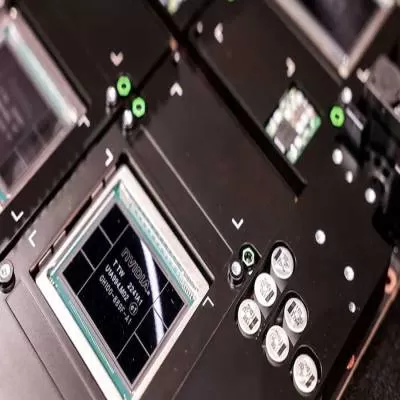

Adani Group's Semiconductor Ambition: Adani Group's proposal for establishing a semiconductor fabrication (fab) unit is currently under appraisal by the Ministry of Electronics and Information Technology (MeitY). This is part of India's broader strategy to bolster domestic semiconductor manufacturing under the India Semiconductor Mission (ISM), aimed at reducing reliance on imports.
Strategic Importance: Semiconductors are vital for numerous industries, including electronics, automotive, and telecommunications. The establishment of a semiconductor fab in India would enhance the country’s technological self-sufficiency, while catering to the growing demand for semiconductors in various sectors, especially with the global chip shortage.
ISM's Supportive Framework: The India Semiconductor Mission (ISM) was launched to promote semiconductor and display manufacturing in the country. The government is offering incentives and support, which could potentially benefit Adani Group’s fab proposal. Under ISM, eligible companies are being provided with capital support, infrastructure support, and incentives to foster domestic manufacturing.
Adani Group's Tech Expansion: Known for its ventures in infrastructure, energy, and logistics, the Adani Group’s move into semiconductor manufacturing signals its intent to diversify into high-tech industries. The proposed fab project represents a strategic pivot towards the advanced technology sector, complementing India’s push towards developing a robust semiconductor ecosystem.
Boost for Domestic Production: Should the proposal be approved, Adani’s semiconductor fab would be a significant step toward reducing India's dependency on imported chips. This could also make India a key player in the global semiconductor supply chain, which has faced disruptions due to geopolitical tensions and the COVID-19 pandemic.
Global Partnerships: To build a semiconductor fab, expertise in various technical areas such as chip design and manufacturing is crucial. It is expected that the Adani Group could collaborate with global players who have the requisite expertise to establish a state-of-the-art semiconductor fabrication unit in India.
Investment and Economic Impact: A semiconductor fab is a capital-intensive project. If approved, the project would require significant investment, potentially generating thousands of direct and indirect jobs, boosting local economies, and strengthening India’s high-tech manufacturing capabilities.
Government's Vision: The Indian government has been vocal about turning India into a global semiconductor hub. By supporting companies like Adani through ISM, the government aims to position India as a semiconductor manufacturing destination, aligning with its vision of “Aatmanirbhar Bharat” (self-reliant India).
Challenges and Opportunities: Setting up a semiconductor fab involves several challenges, such as securing supply chains, ensuring the availability of raw materials, and achieving economies of scale. However, with government backing and technological collaborations, Adani's fab project could address these challenges while seizing the growing demand for semiconductors in India and globally.
Potential Industry Shift: As the semiconductor industry evolves, India’s entry into this space with players like Adani Group could reshape the global supply chain. A domestic fab would not only support local industries but also position India as an exporter of semiconductor components, adding a new dimension to the country’s industrial landscape.
Conclusion: Adani Group's semiconductor fab proposal being at the appraisal stage under ISM marks a crucial moment for India's semiconductor industry. If approved, this project will play a significant role in advancing India's self-reliance in chip manufacturing, contributing to the country's high-tech growth and addressing the global semiconductor shortage.